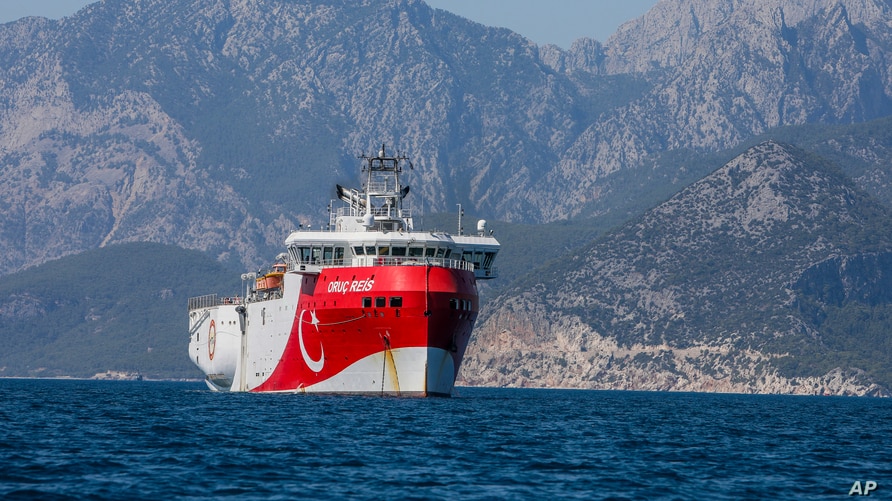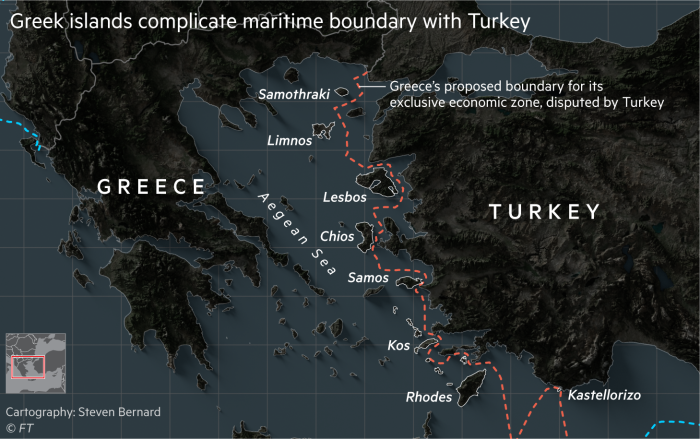Almost 20,000 asylum applications are currently pending in the Republic of Cyprus (RoC). According to the Ministry of Interior, asylum seekers on the island now account for 4% of the country’s population. This has an inevitable impact on the ethnic makeup of the island and on the future of the Cyprus Problem negotiations. The RoC has thus far followed a pushbacks policy and installed a razor wire to prevent irregular migration. “Pushbacks” refer to the practice of turning people away without giving them the opportunity to request asylum.. Under International Human Rights Law, however, states must respect the rights of all people moving across borders regardless of their migration status. As a result, the policies followed by the RoC have been in violation of the International Human Rights Law. This article explains the violations by the RoC in its attempt to control irregular migration and what implications this has on the Cyprus Problem.
In March 2020, Cypriot authorities carried out, for the first time, a number of pushbacks of boats carrying mainly Syrian, Lebanese and Palestinian asylum seekers who departed from Turkish and Lebanese coastlines. Between March and September 2020, a total of 9 pushbacks were carried out according to Human Rights Watch. These incidents have drawn the attention of the Council of Europe Commissioner for Human Rights, Dunja Mijatovic, who called the expulsion of the boats illegal and requested additional investigations on how Cyprus treats asylum seekers currently on the island. Mijatovic wrote a letter to Nicos Nouris, the Minister of Interior of the RoC, calling for a constructive dialogue with Cyprus regarding the treatment of asylum seekers on the island and the illegal pushbacks that have taken place. In the letter, Articles of the European Convention on Human Rights, the UN Refugee Conventions and notes of the violations that Cyprus has conducted were cited numerous times.
Nouris responded to Mijatovic with a letter that notably did not address any of the legal references to the European Convention on Human Rights and the UN Refugee Convention made by Mijatovic.. Nouris’ response instead forefronted only that ‘Cyprus is facing a new trend of irregular arrivals of migrants on the island’, and no justification was given for the pushback policies that followed. In a statement he gave to the Guardian, he said: ‘Cyprus simply has no more space’. In addition, the RoC has accused Turkey of deliberately seeking to create a new migration route in the eastern Mediterranean to alter the demographics of Cyprus. Turkey still does not recognise the RoC, explaining the lack of cooperation between the two countries on the migration issue.
Turkey and the European Council signed an agreement in 2016, to stop irregular migration and monitor the arrival of asylum seekers to EU states. Turkey, however, has been warning that it may send asylum seekers and refugees to the EU despite their previous agreement – a threat that it eventually followed through on in February 2020. As a result, hundreds of asylum seekers and migrants have been arriving on Greek islands and Cyprus from February and March 2020. Cyprus has received hundreds of asylum seekers as a result of Turkey’s policy, but this cannot be used by the RoC as a justification for violating International Law. As stated by UNHCR Cyprus representative, Katja Saha, any pushbacks policy constitutes a violation of International Law and, before any policy response is implemented, the terms ‘migrant’ and ‘asylum seeker’ must be clearly distinguished. Saha has also stated that Cyprus has the legal right to control its borders as long as its policies respect International Law.
The implementation of the pushbacks policy and the refusal by the government to respond to the accusations made by the European Commission for Human Rights, has led to the mobilization of Cypriot humanitarian NGOs against the government. KISA, a Migrant and Refugee Centre, has said that that the living conditions at the refugee camps in Cyprus ‘constitute blatant violations of the Refugee Law’ and that they are ‘extremely dangerous for the health of asylum seekers and public health in general’. KISA has also stated that it has brought legal proceedings against the Cypriot Ministry of Interior before the European Court of Human Rights.
Following the pushbacks’ scandal, the Ministry of Interior of the RoC installed a 11km razor wire along the ‘green line’ to stop migrants and asylum seekers from entering the RoC from North Cyprus. According to the Asylum Information Database Report on Cyprus, created by the Cyprus Refugee Council, the wire will not solve the issue of migration because most people enter the RoC directly from the sea and not from border crossings on the island. In addition, it should be noted that many of the people crossing from Northern Cyprus are not illegal migrants as the RoC argues, but people with valid asylum and refugee claims. A group of political activists, known as ‘Os Dame’ (translated as “we’ve had enough”) have cut a piece of the wire and placed it in front of the Ministry of Interior to show their opposition to the government’s new approach to migration. The decision by the RoC to place a wire along the ‘green line’ has led, once again, to the opposition of the European Commission because it violates Article 10 of the Green Line Regulation which states that any change in the policy of the RoC on the crossing of persons should be approved by the Commission before being applied. The European Commission spokesperson, Vivian Loonela, said that the Commission did not receive any notification about the construction of a new fencing from the RoC. In addition, this decision has also been criticised by Cypriot opposition parties for legitimising the division of Cyprus. According to AKEL, the main opposition party, the razor wire is entrenching the ethnic division of the island and it is implying the official acceptance of borders between the RoC and Northern Cyprus.
Despite the opposition within Cyprus and from the European Commission, the President of the RoC, Nicos Anastasiades, has defended the installation of the razor wire along the UN controlled ‘green line’. The ‘green line’ which is also known as the UN Buffer Zone, is not an external border for the EU, although it separates Cyprus into two parts. It is monitored by the UN and, since the RoC entered the EU, the Green Line Regulation was also established setting the terms under which persons and goods can cross the line from the TRNC to the RoC. According to President Anastasiades the wire is a response to Turkey’s strategy on Cyprus, which is to alter Cyprus’ demographics through increased migratory flows. In response to the opposition that this policy has received from many Cypriots, the President said: ‘I am not aware as to how many residents have reacted but if any problems whatsoever are being caused then they will be resolved’. It is worth noting that in addition to the restriction of movement that the wire imposes to migrants and asylum seekers attempting to cross into the RoC, it also restricts access to local farmers who work land near the ‘green line’. The RoC’s spokesman, Kyriakos Koushos, has stated that this policy does not imply any ‘political or other message’ regarding the Cyprus Problem and that it has been made in accordance with Article 10 of the Green Line Regulation. Koushos insisted that the European Union and the UN were informed about the razor wire beforehand, despite the statements of the European Commission claiming the opposite.
The RoC has faced numerous criticisms over the treatment of migrants and asylum seekers on the island. Turkey’s strategy against the island cannot serve as a justification for the human rights violations that the RoC has conducted. The European Union and the UN have criticised Turkey’s treatment of refugees and asylum seekers, but they have nonetheless urged the RoC to stop its current policy of pushbacks. At the same time, the installation of a razor wire along the ‘green line’ has a negative impact on asylum seekers currently on Cyprus, who are unable to cross into the RoC and apply for asylum. The RoC should change its current policy on migration and asylum, stop committing human rights violations and follow the European Convention on Human Rights instead.




